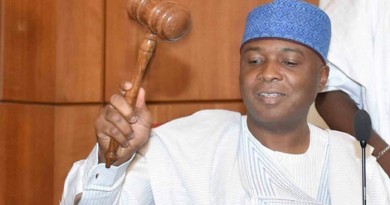Nigerians prefer lower interest rates to lower inflation – CBN Survey
A quarterly survey report titled Inflation Attitudes Survey Report for Q3 2019 released by the Central Bank of Nigeria (CBN) has shown that Nigerians would rather have a lower interest rates than lower inflation.
The Survey report which was released on Tuesday, measured Households’ perception/expectations of price changes in the past one year/next one year, Households’ perception/expectations of interest rate changes in the past one year/next one year, Households’ opinions on the impact of interest rate changes in households and on the Nigerian economy, Households’ perception of the impact of interest rate changes on prices in the short and medium-term, and Households’ assessment of CBN’s role in controlling inflation.
The survey was conducted in 2,070 households that were randomly selected across Nigeria, with a response rate of 98.3 per cent.
Respondents who were asked what would happen to the Nigerian economy if prices started to rise faster than they are now, 52.9 per cent believed that economy will grow weaker, 6.4 per cent said it will grow stronger, while 19.5 per cent thinks there will be little difference. 21.2 per cent did not respond.
This suggests that Nigerians prefer stability in prices. This supported the notion that inflation constrains economic growth.
On price changes over the next one, majority of the respondents think inflation will rise by 2.7 per cent.
On interest rates, the survey showed that 47.6 per cent of the surveyed households knew nothing about interest rates.
Out of the remaining 52.4 per cent, 28.2 pr cent believed interest had risen in the last 12 months.
On expected change on interest rates for bank loans and savings, 21.4 per cent think rates will rise, while 14.7 per cent believed that rates will fall. However, 63.9 per cent of the respondents were indifferent or had no idea.
When asked whether if it would be best for the economy if interest rates fall or rise, 37.9 per cent indicated that a fall in interest rates will favour the economy. 6.5 per cent opted for a rise in rates, 14.6 per cent were indifferent. However, a large percentage (40.6%) had no idea.
This indicates that while some Nigerians would prefer a fall in interest rate, the majority have no idea on interest rates.
On the issue interest rates versus inflation, they when asked whether they will prefer a high-interest rate or high inflation, 33.7 per cent preferred a rise in prices (high inflation), 22.5 per cent preferred higher interest rates, while 43.4 per cent had no idea.
This suggests, when given a trade-off, Nigerians will prefer higher interest rates to higher inflation. This is also suggestive of support for bank’s price stability objective.




